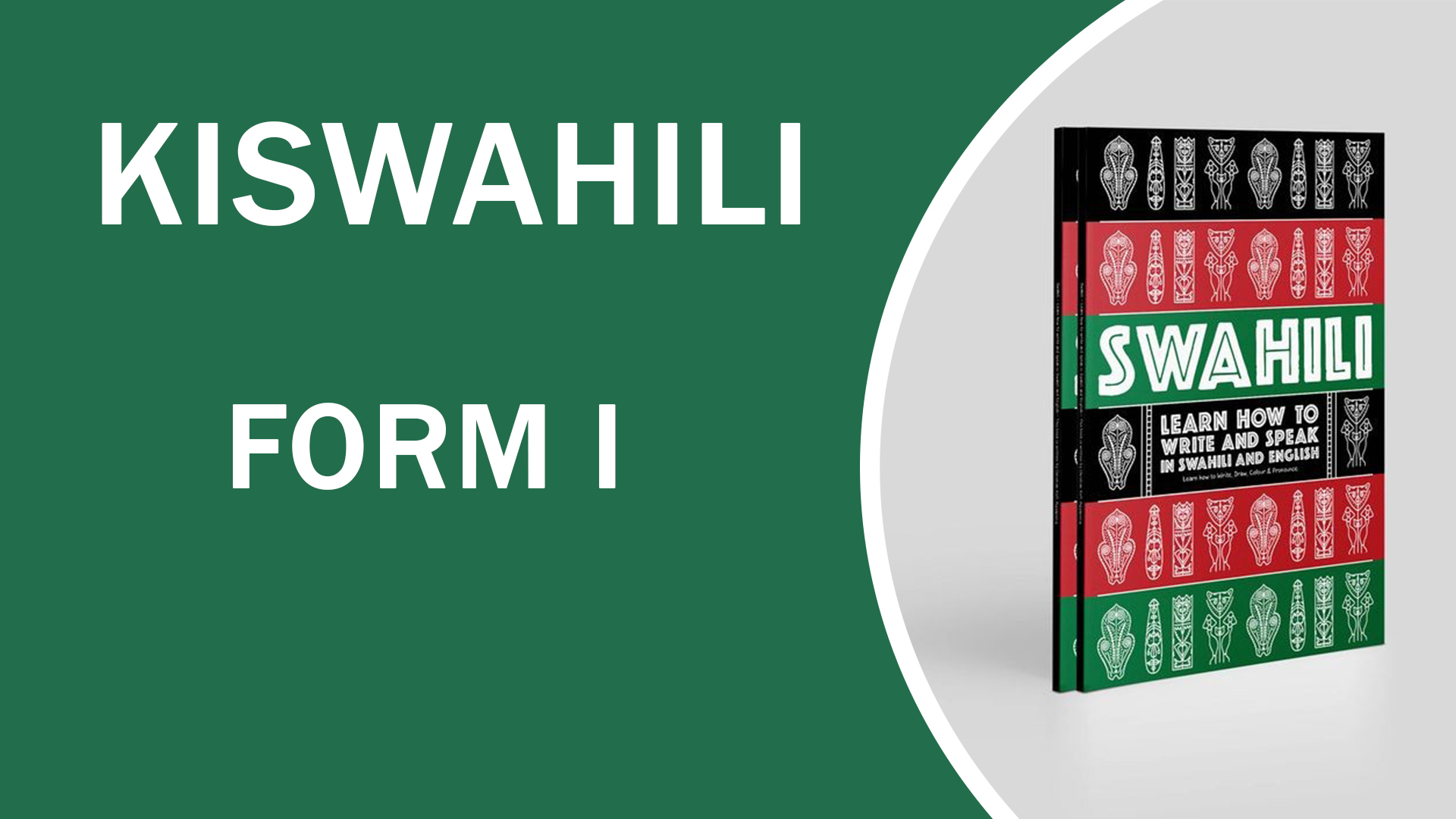Certainly! Here's a well-structured Kiswahili Form I Learning Outcomes section for your Edukea website videos:
Learning Outcomes for Kiswahili – Form I
By the end of the Form I Kiswahili course, students will be able to:
-
Use basic Kiswahili vocabulary and phrases for everyday conversations, including greetings, introductions, and expressing common needs.
-
Construct simple sentences using correct Kiswahili grammar, including proper use of nouns, verbs, and adjectives.
-
Understand and apply Kiswahili sentence structures, including subject-verb-object order and noun class concords.
-
Comprehend and interpret short Kiswahili texts, such as simple dialogues, stories, and descriptions.
-
Practice proper Kiswahili pronunciation by recognizing and correctly producing sounds, accents, and intonations.
-
Write short passages and paragraphs in Kiswahili, focusing on basic sentence formation and vocabulary.
-
Understand basic cultural concepts related to Kiswahili-speaking communities, including traditions, folklore, and customs.
-
Engage in simple oral communication, including asking questions, giving responses, and participating in short conversations in Kiswahili.
These outcomes ensure that students build a solid foundation in Kiswahili, setting the stage for more advanced studies in the language.
Let me know if you need further adjustments or additional content!
Certainly! Here's a clear and concise Kiswahili Form I Requirements section for your Edukea website videos:
Requirements for Kiswahili – Form I
To succeed in Form I Kiswahili, students should have:
-
Basic knowledge of the alphabet and phonetics of Kiswahili to help with correct pronunciation and reading.
-
An interest in learning a new language, with a willingness to engage in simple conversations and activities in Kiswahili.
-
Good listening and speaking skills, as students will practice comprehension through oral exercises and dialogues.
-
Basic writing abilities, as students will be required to construct simple sentences and paragraphs in Kiswahili.
-
Familiarity with basic grammatical concepts, such as nouns, verbs, adjectives, and sentence structure, which are essential for forming correct Kiswahili sentences.
-
Curiosity about Swahili culture, as the course integrates cultural elements like songs, folklore, and traditional stories.
These skills will help students engage with the language effectively and build a strong foundation for advanced studies in Kiswahili.
Let me know if you'd like the learning outcomes for Form I or any further adjustments!
Certainly! Here's a detailed Kiswahili Form I Description for your Edukea website videos:
Kiswahili – Form I
Form I Kiswahili introduces students to the fundamentals of the Swahili language, focusing on building basic communication skills, vocabulary, and an understanding of Kiswahili grammar. The course emphasizes listening, speaking, reading, and writing skills, with activities designed to improve fluency and comprehension. Students will explore simple sentence structures, noun classes, greetings, and everyday conversations. Additionally, the course introduces students to Swahili culture through folklore, songs, and traditional stories. Through interactive lessons and practical exercises, Form I Kiswahili helps students develop a solid foundation in the language, preparing them for more advanced studies in subsequent years.
Let me know if you'd like the requirements or learning outcomes for Form I as well!
